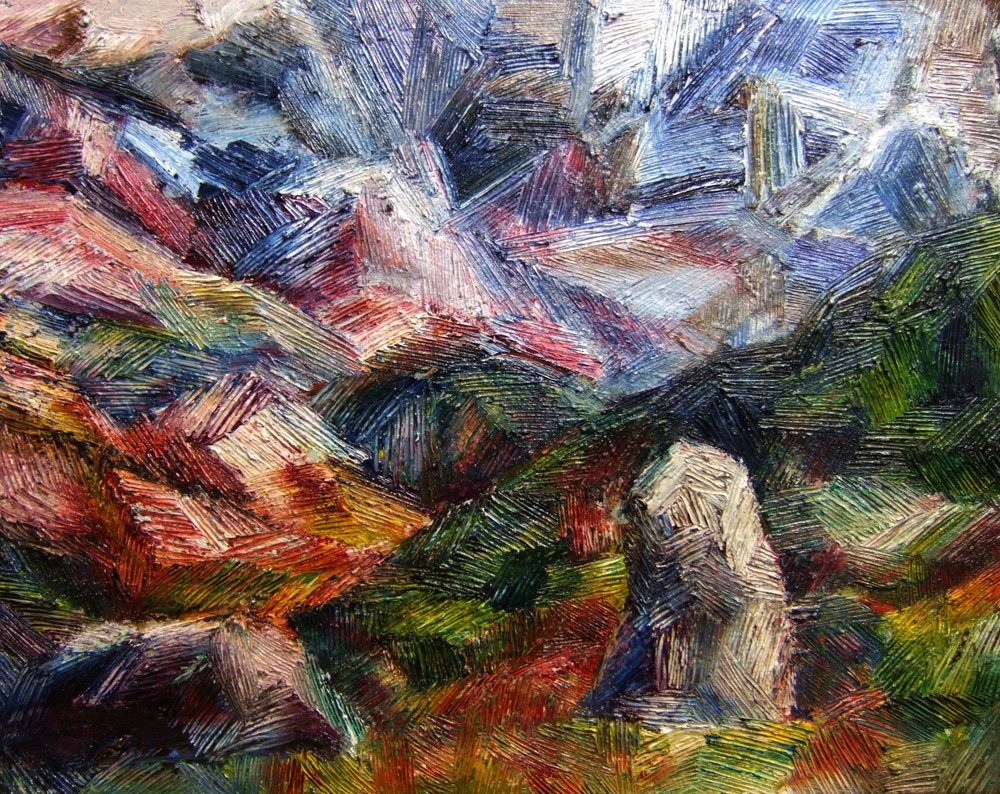Susan Firer
BIRDS
I found the blue jay on the driveway
under the pink drunk Czechoslovakian-
grandma-planted peonies which were
under the restrained Scotch pine.
The bird’s nape was wide open.
You could kaleidoscope-look
into its neck and see rubber bands
leading to its complex brain.
You could see everywhere
it had ever flown: chaparral, scrub-oak
woodlands, coniferous & oak forests. There
were nuts, & insects, & seeds, & amphibians,
& even a piece or two of snake.
There was a cache of foil-bright objects, &
sounds: zreeks & shook, shook, shook & all
the colors of sex and death. I bent to it,
picked it up and brought it to my heart
like the strange forest pioneer women who took
abandoned bear cubs to their bare breasts
and rock-nursed them in front
of cabin fires until the cubs could live
on their own. I have not often since
had such patience. But then with that
found jay I stroked its wingbars & flight
feathers; I memorized its eye-rings, & crown,
wing coverts, & eye-stripes. And with weeks
and water, food, and breath
I brought it back to flight. For that
short summer I loved it more than myself,
enough to let it go. For months it would not.
Every time I went outside, it flew streetlight
straight to my head or shoulder
where it easy perched. There are photos
of me teenaged giving it milk-blue
bowls of water and photos of me bikini sun-
bathing, the blue jay on my then-
tan, flat belly, the jay feeling deceivingly
light as the first intimate gift-flesh touch
of love, as the children who swell and fall
from our love-soaked bodies, deceiving
as the hollow-boned, song-filled birds
that daily blue-grass drop dream feather
trails throughout our skin-heavy days.
—from Rattle #16, Winter 2001
Tribute to Boomer Girls
__________
Susan Firer lives, writes, and works within ear’s distance of the western shore of Lake Michigan. (link)


